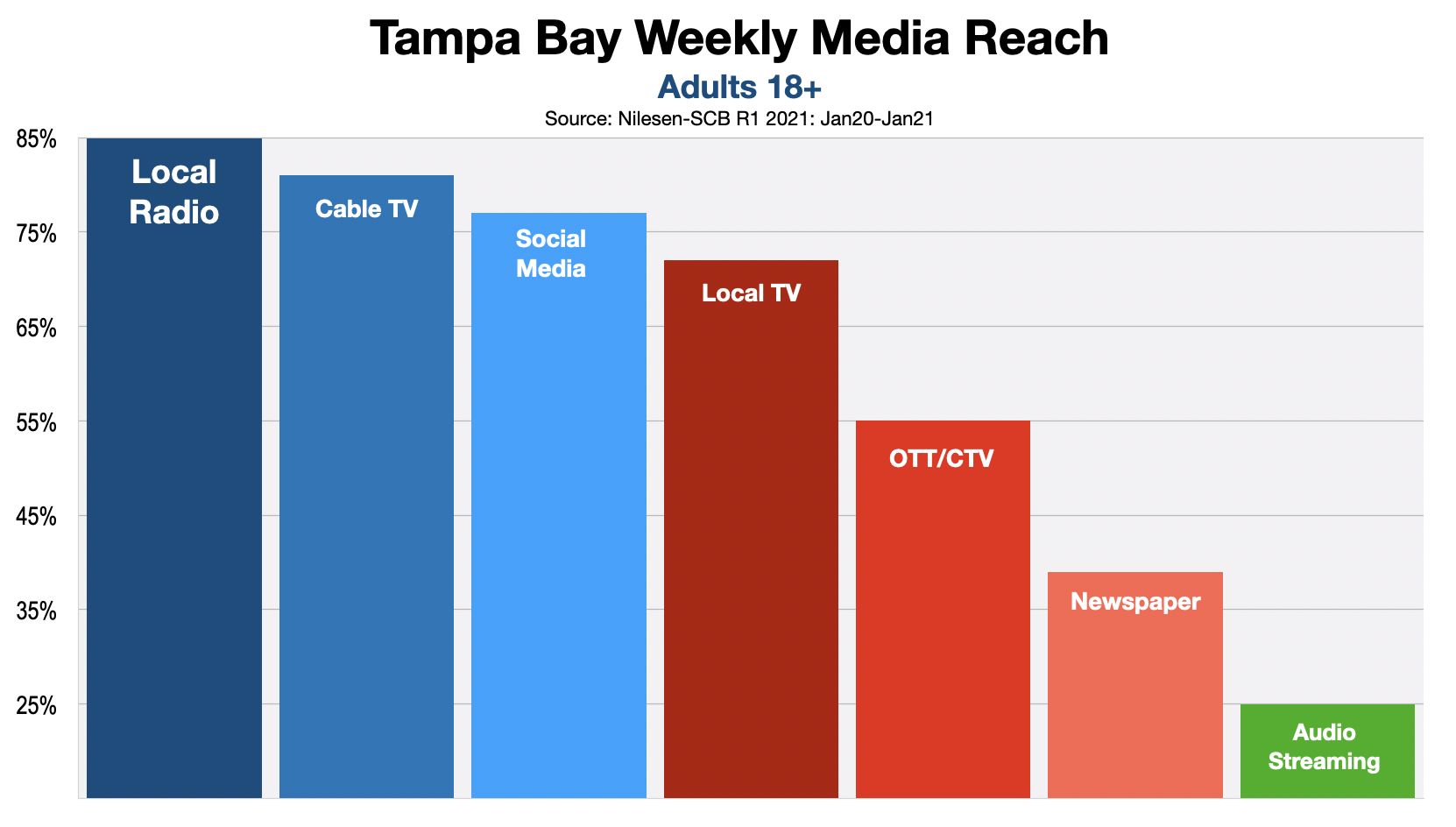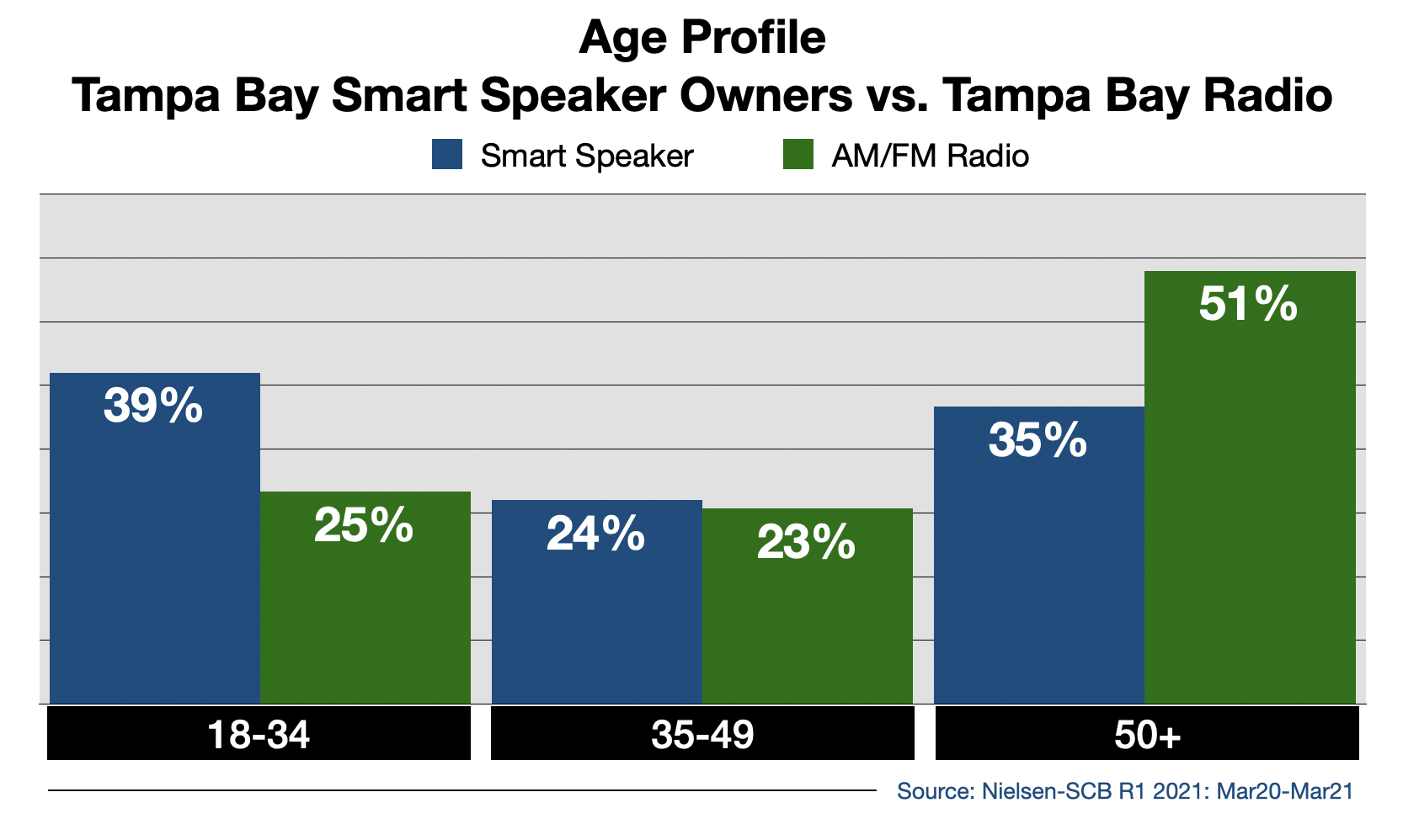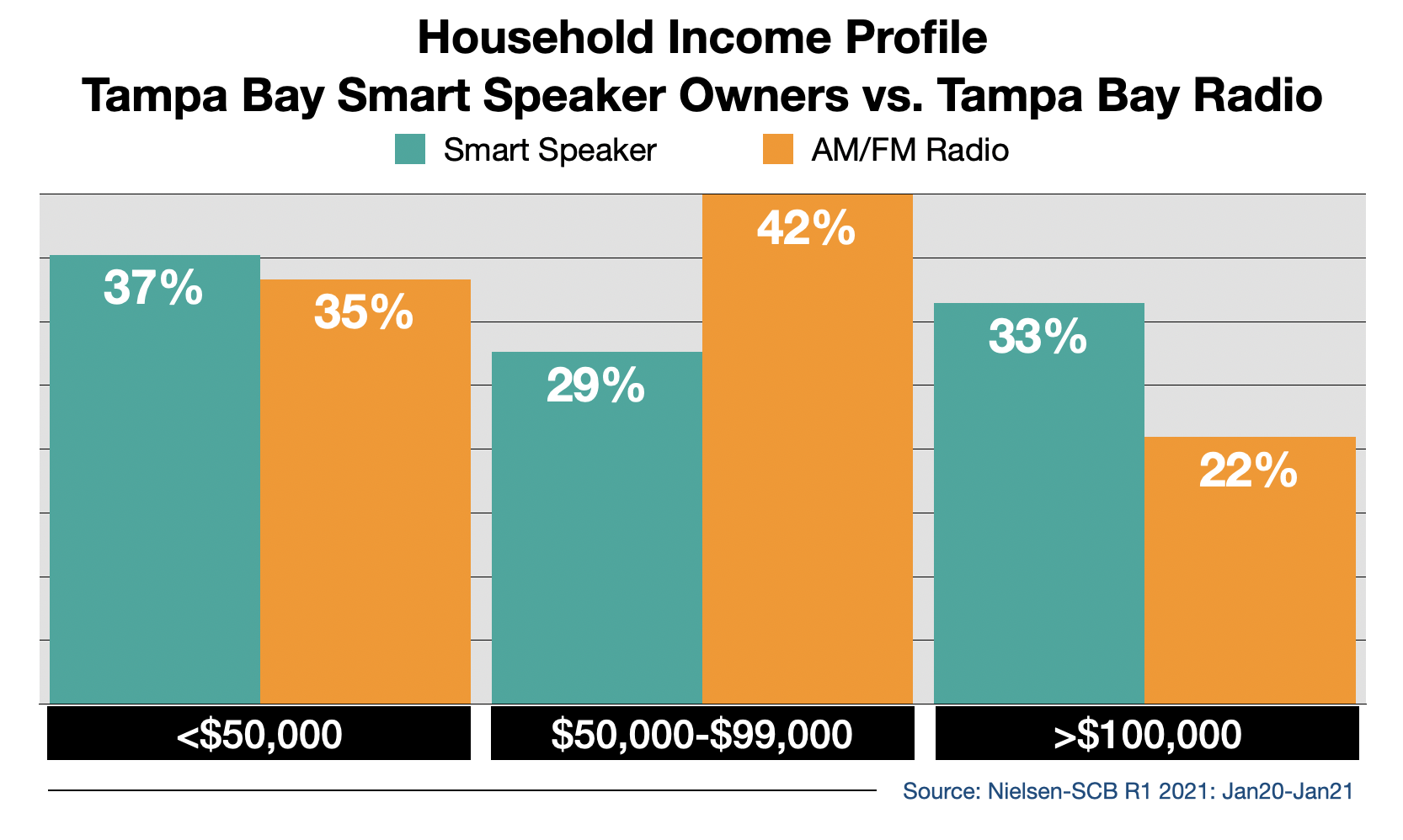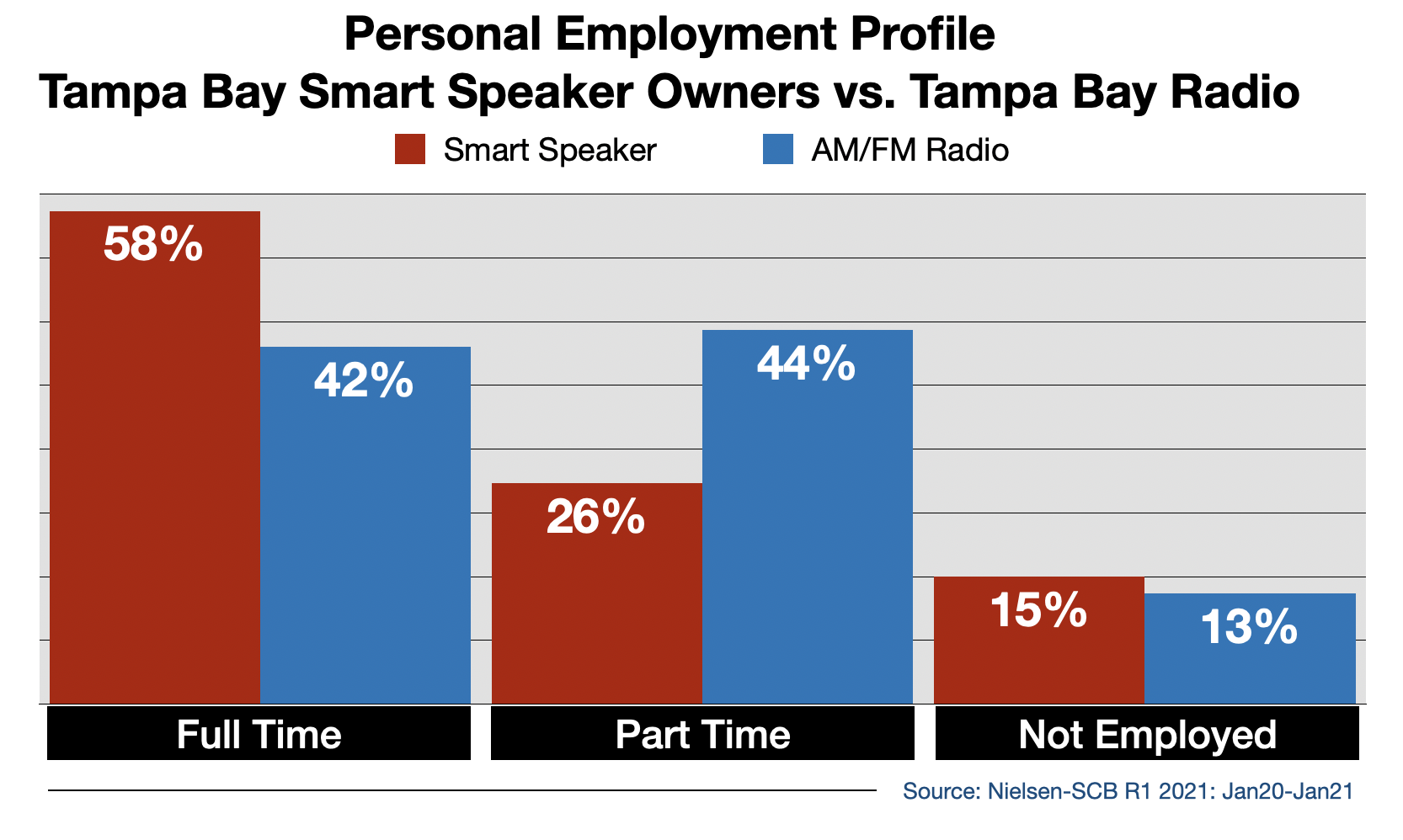Since 1922 when WDAE-AM signed on, local small business owners have been advertising on Tampa Bay radio to market the goods and services they sell.
Lately, some of these advertisers are voicing concerns, though, that the accelerating use of smart speakers could erode the effectiveness of commercials on local stations. Current research, however, reveals that these devices actually extend the reach of the medium and its ad content.
More than 727,000 consumers in Tampa Bay have a smart speaker in their homes, according to Nielsen. This is 28% of the local adult population.
Smart speakers are internet-enabled devices controlled by spoken commands and capable of streaming audio content, relaying information, and communicating with other devices.
According to the Cooperative Institutional Research Program (CIRP) data, Amazon Echo (aka Alexa) accounts for 69% of all smart speakers in use. Google's smart speaker makes up another 20% of the market. The remaining 11% of the market comprises Apple Home (aka Siri), Sonos, and Bose.
Tampa Bay consumers can use their smart speakers to accomplish a diverse range of tasks, including accessing news, weather, and sports information; turning on lights in the house; shopping; and food delivery.
The most common use of a smart speaker, though, is streaming audio, including Tampa Bay radio stations, according to eMarketer. Edison Research's Share of Ear Study indicates that consumers devote 13% of their total time using a smart speaker listening to AM/FM radio stations. This is second only to the time spent listening to Amazon Music at 19%.
Local radio's dominance of smart speaker usage adds significant value to every advertising campaign local business owners place on Tampa Bay radio. Here's why.
Each week, Tampa Bay radio reaches more adult consumers than all other advertising options, including local TV, cable, social media, and newspapers.
When a consumer listens to a Tampa Bay radio station on a smart speaker, it includes the commercials that play over-the-air. This ensures that advertising purchased by local business owners will be heard regardless of whether listeners tune-in with their car radios, station apps, laptops, tablets, or smart speakers.

As a matter of fact, according to Edison Research, AM/FM radio commands, by far, the highest share of time spent listening to ad-supported media on smart speakers.
There is another powerful benefit to local business owners when their Tampa Bay radio commercials are played on smart speakers.
Radio listening in Tampa Bay is a nearly universal media habit. Therefore, listening audiences tend to mirror the local population. Those consumers who hear a radio commercial on a smart speaker, though, tend to be younger, wealthier, and have full-time jobs. These are demographic criteria most coveted by many local business owners.
The adoption of smart speakers into the media lives of consumers has had no measurable effect on the potency of advertising on Tampa Bay radio. These devices have, instead, expanded the number of ways local consumers can access their favorite stations.










